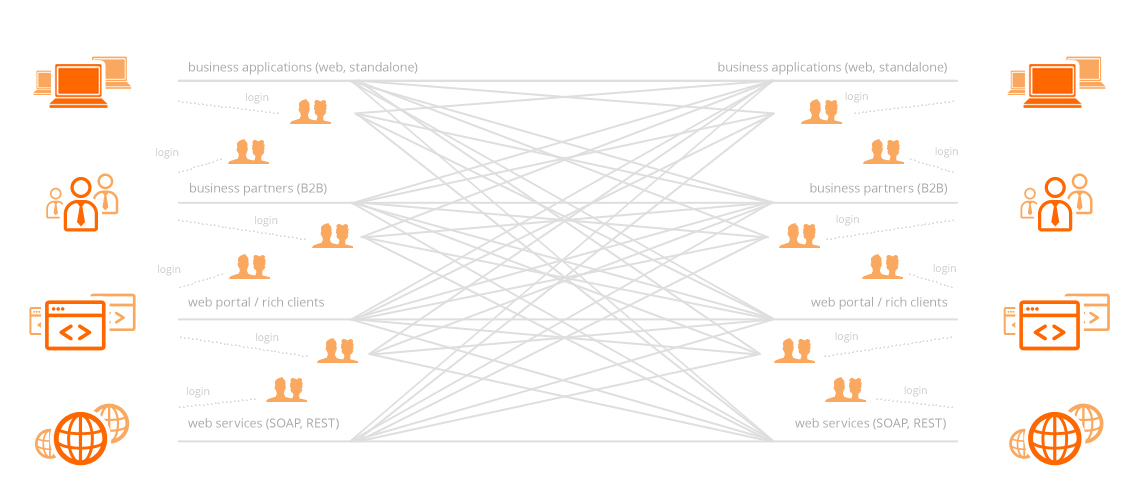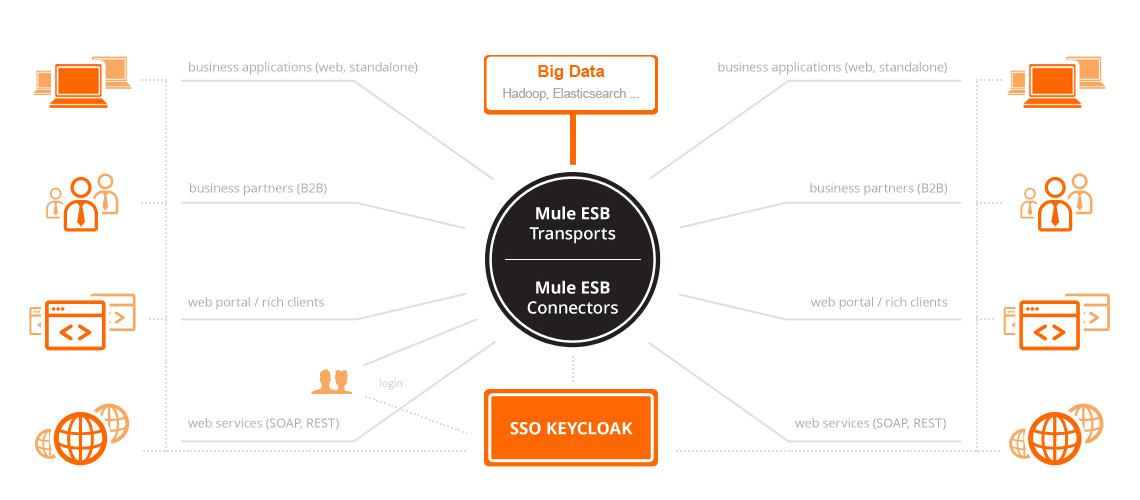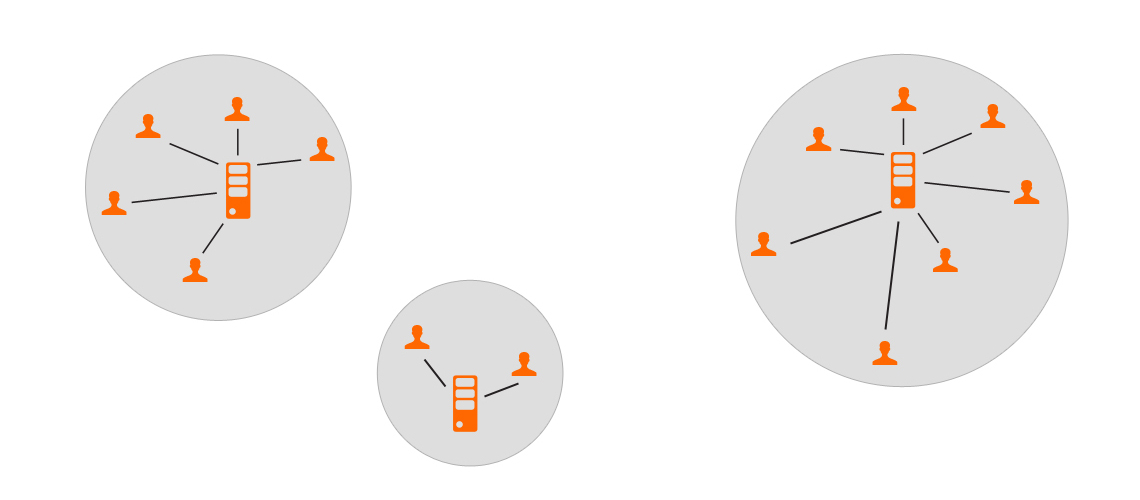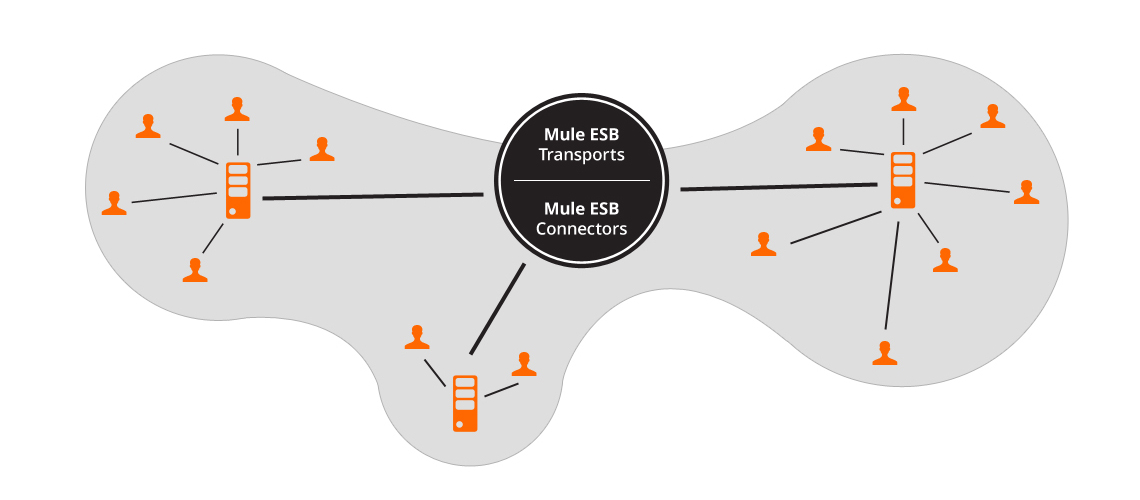Lower your expenses with system integration
What is system integration
System integration is a process of connecting independent systems and services together to form a new higher functional unit. In fact, these cooperating systems are much more useful this way than when working separately. System integration often means working with a large number of geographically distant and logically heterogeneous systems. The new structure emerging from connection of these systems can provide valuable resources, as you'll see later. But what does the term "system" exactly mean in this context?
The systems, components of the new integrated unit, can be diverse, from specific single-purpose programs to intranet portals, data vaults, accounting systems, e-shops, customer portals or enteprise resource planing systems (ERP). We are able to integrate products from Salesforce, SAP and others. The final product of the integration process is a group of systems and services communicating and cooperating reliably.
I need system integration
System integration is a broad term covering a range of aspects. What can we do for you specifically?
- Integration of users and roles (Keycloak SSO) - every user of any of the integrated systems is logging in only once. Every other system is capable of reusing this login and spares the user from typing in the same credentials over and over. This approach is usually refered to as single sign on (SSO) and Keycloak is one of the best implementations. A huge advantage of this approach is having a complete overview of all users and their roles. Another possible improvement is using a Big Data as a repository of all user information.
- Data integration (Mule ESB and Big Data) - enables the end user to transparently access heterogeneous data from more than one source. This means that we can aggregate data from e.g. social networks (Linkedin, Facebook, Google+, Twitter etc.) into a Big Data or Data Grid solution and then send it online through Mule ESB. The possibilities are truly endless!
- Application integration (Mule ESB) - connects all of the client's applications. Each of these can use a different communication protocol and a different technology stack (JMS, WS, JDBC, HTTP, Java, C++, PHP etc.). Application integration with Mule ESB is really simple and effective, regardless of its version (Community or Enterprise).
The importance of system integration is steadily rising. On the one hand, there are simply too many legacy systems, morally and technologically falling behind and on the other there are many new systems being built to solve problems. Without the principles of system integration, this solution is not viable in the long-term. Take a look at the pictures below to understand the difference between a fully integrated system and the usual situation in many companies.
Our solution
A key benefit of system integration is the possibility of connection of previously unconnectable systems and services and the ability to react in real time to incoming data from all the different distant systems (e.g. social networks such as Facebook, Google+, Twitter, etc.). There is also the posibility of aggregating all the data into Data Grids or Big Data solutions. This aggregated information may be further distributed and processed by Mule ESB. It not only connects all of these systems, but also guarantees that you'll have all the accessible information from incredibly broad spectrum of systems and services.
Specific advantages of system integration are:
- Higher security.
- More stability across the system.
- Lower costs and expenses.
- Possibility of further growth.
- Connection of previously unconnectable systems.
- Higher performance and automation of the system.
How would you like the ability to find new clients based on their activity on Facebook or Twitter? Mule ESB can automatically evaluate conditions based on Big Data and contact a sales rep with potential client information. It is also possible to send SMS or use a mobile application. The posibilities are truly endless. When everything is connected, then nothing can stand in your way to success.




